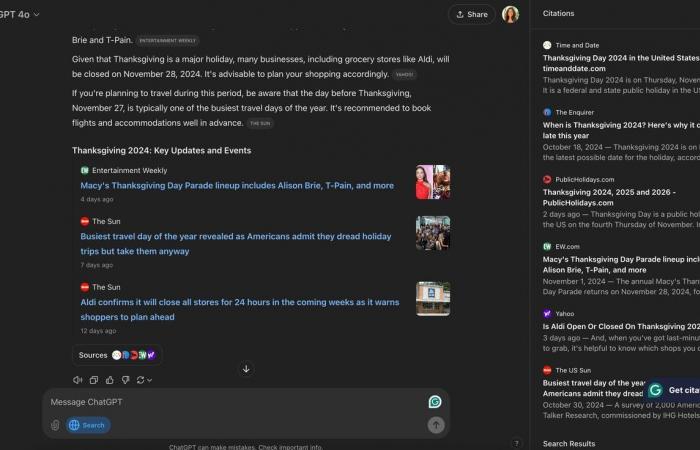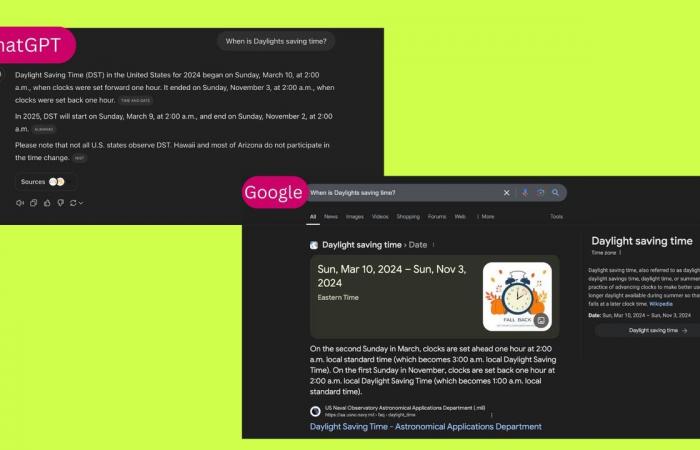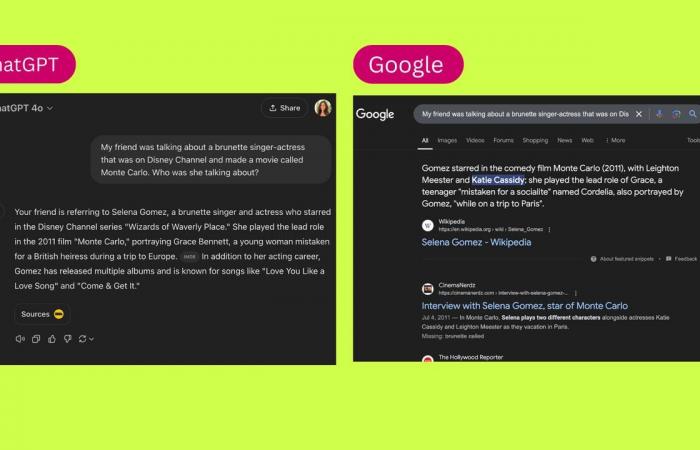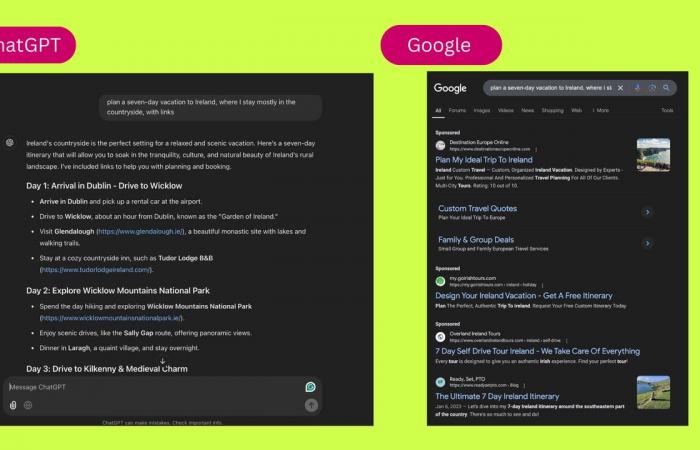Most people rely on search engines, especially Google, to find the most up-to-date information. And so far, this process has remained relatively effective. However, artificial intelligence (AI) and natural language processing (NLP) can make searching even easier.
Most of us have learned to type specific terms when searching on Google. But instead of entering a structured phrase with keywords into Google, you can enter a completely disjointed phrase into ChatGPT Search. And still get excellent results.
Does this sound too good to be true? I’ll show you.
What is ChatGPT Search?
Last week, OpenAI unveiled ChatGPT Search, which allows web searches directly within ChatGPT. Yes, you get up-to-date and timely information, with quotes linked to sources. The tool can be used manually or activated whenever a user request can benefit from online information.
With ChatGPT Search, you can type your sentence as you think. And the AI will understand the meaning of your query by leveraging its NLP capabilities. This simply means you can spend less time crafting a query. And all while getting exactly what you want.
Additionally, the responses are conversational and read the same as if a human were speaking to you. This makes the search process easier, and allows you to get results quickly without having to click through numerous articles to find what you need.
Sites that block OpenAI’s crawler will not appear in search results
If you want to get results from a traditional search engine, answers include in-text citations and a “sources” button which, when clicked, will display a long list of links in the right bar. ChatGPT Search will also display a few search result links below the answer so you can easily visit the links without having to click on anything.
Screenshot by Sabrina Ortiz/ZDNET
But sites that block OpenAI’s crawler won’t appear in search results, so you might miss content from some of your favorite sites.
However, OpenAI has several partnerships with reputable media outlets, including Associated Press, Condé Nast, Financial Times, Hearst, Reuters, The Atlantic, Time, and Vox Media. Many other websites have also chosen to be included in ChatGPT’s sources.
ChatGPT Search vs. Google
I entered three search queries into Google and ChatGPT.
The first query was simple: “When is daylight saving time?” As this is a simple question, both entities produced almost identical results, showing dates and a brief description.
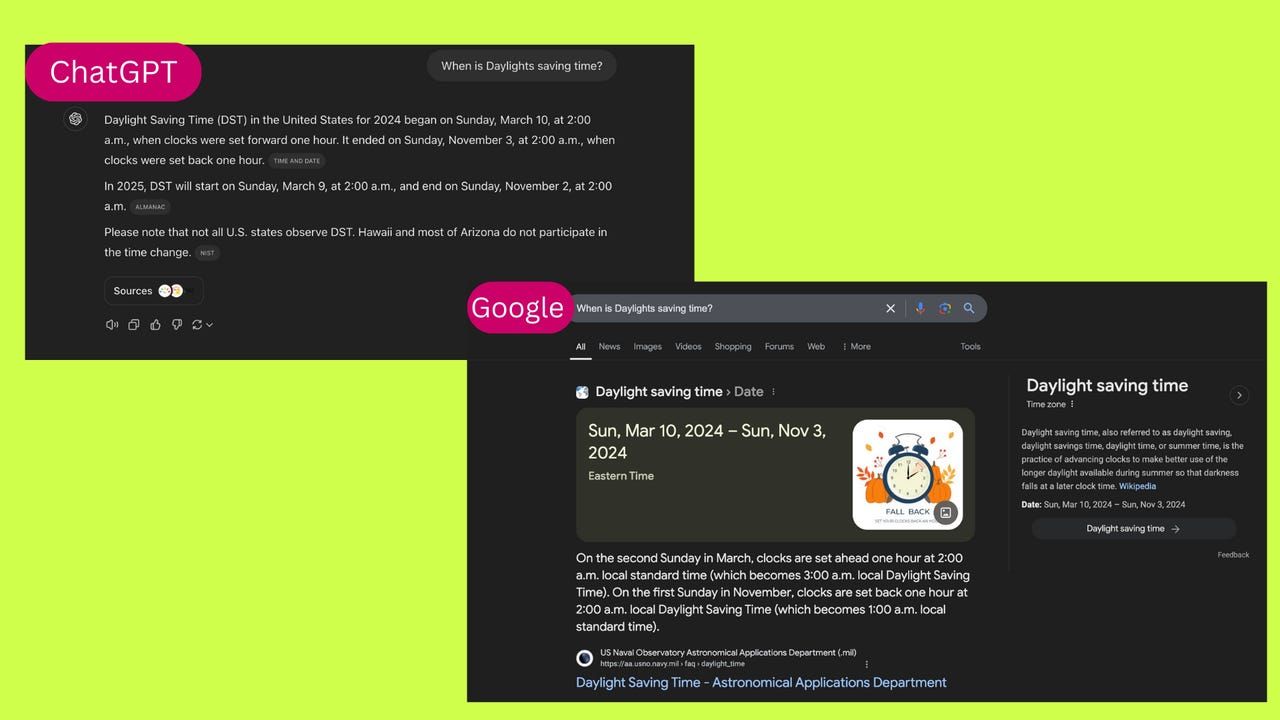
Screenshot by Sabrina Ortiz/ZDNET
While there is no clear winner in this challenge, it is a good example of how effective ChatGPT is compared to Google, which has been the most used search engine for over a year. decade.
Selena Gomez takes the lead at ChatGPT
For the second question, I asked, “My friend was talking about a brunette actress-singer on the Disney Channel who did a movie called Monte Carlo. Who was she talking about?” I tried to make the search query as conversational as possible in this question:
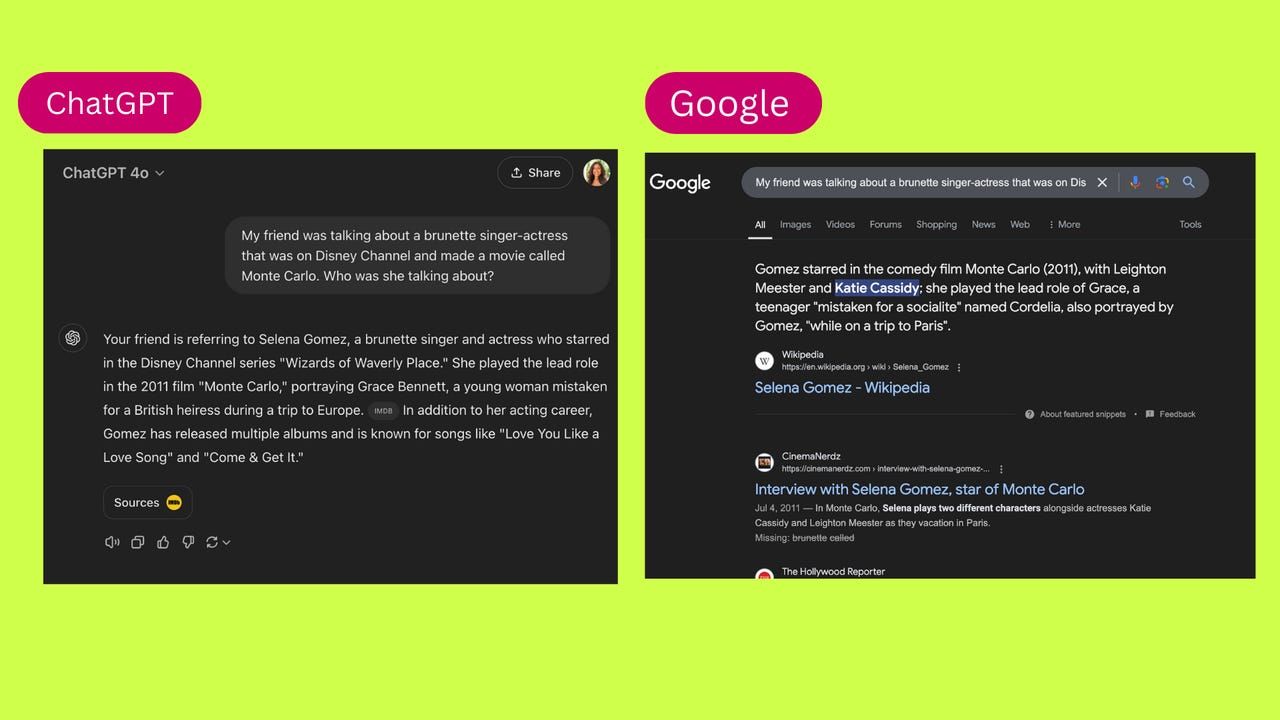
Screenshot by Sabrina Ortiz/ZDNET
In these results, ChatGPT did a better job and immediately nominated Selena Gomez. The tool even rephrased my question in its answer and added useful context.
All Google could do was show an excerpt from Selena Gomez’s Wikipedia page. The excerpt doesn’t even name her by her first name. Only by looking at the name of the page does the result refer to Selena.
The stay in Ireland gives ChatGPT the match
Finally, I asked both engines a more difficult question: “planning a seven-day vacation to Ireland, where I will stay mostly in the countryside.” The Google results were just a page of results with links. ChatGPT provided me with a planned day-by-day itinerary with specific locations and activities.
However, ChatGPT wasn’t automatically giving me links or a call in the search function. So I slightly modified the initial prompt by adding “with links” at the end. And I received a personalized response including an itinerary with links to the sites and places to book:
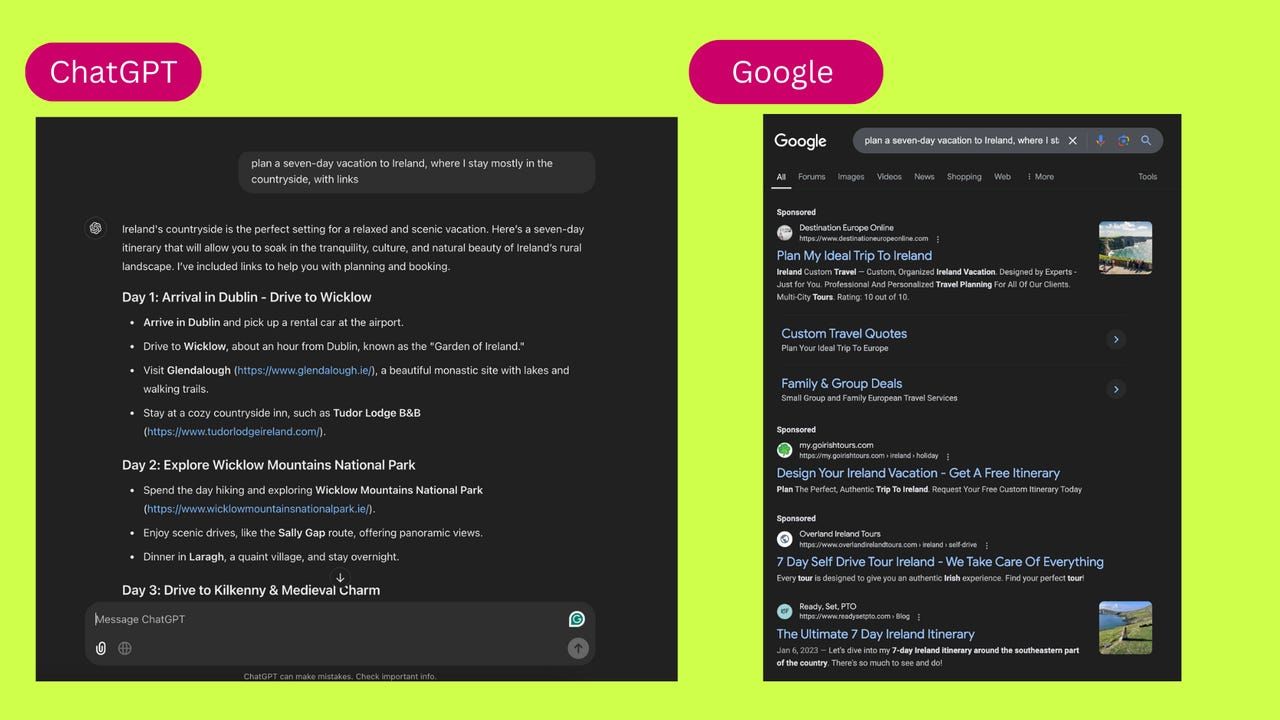
Screenshot by Sabrina Ortiz/ZDNET
Verdict : ChatGPT met KO Google Search
In this test, there was a clear winner. A tool created a detailed itinerary with links to more information about each site. The other tool took me to other sites, where I had to find which one was most useful by trial and error.
These results do not mean that Google has become useless. I chose these examples to show the strengths of ChatGPT compared to Google. Including for everyday searches on general topics. Google still has some advantages, such as search on shopping or the link to Google Maps. However, for everyday searches, ChatGPT seems to be the easiest way to quickly find the answers to your questions.
The question of the availability of ChatGPT Search
The search experience is available on the ChatGPT website, desktop, and mobile apps for all ChatGPT Plus, Team, and SearchGPT waitlist users.
ChatGPT Plus subscription costs $20 per month and offers other benefits, such as new voice mode, Canvas, and unlimited image generation.
Enterprise and Edu users will receive access in the coming weeks, and free users will receive access in the coming months.

